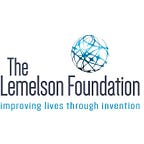It Takes an Ecosystem to Build an Enterprise
By Kenneth Turner Program Officer, The Lemelson Foundation
Anemia has long been recognized as a major public health threat in India. By 2005–06 it was affecting nearly 70 percent of all Indian children ages one to five, and 55 percent of women ages 15–49. (Anemia, Volume 2014, Article 176182). Its toll was particularly harsh in rural areas where the lack of access to basic diagnostics and treatment often resulted in premature births, low-weight newborns, and maternal deaths.
A group of friends from India teamed up to address this problem in 2008. With diverse expertise ranging from biomedical engineering to management consulting, they recognized a challenge ripe for technological breakthrough and a business opportunity with the potential for significant social impact. They formed the enterprise Biosense Technologies and, after a period of significant technical iteration and invention, succeeded in creating a non-invasive portable medical device suitable for even the most low resource of settings. They called the product TouchHb, and the device is now transforming the diagnosis of anemia across India.
Since 2008, Biosense has created a full suite of medical device technologies with the potential to address critical health challenges, in India and beyond. But the founders of Biosense didn’t get this far on their own. They have been bolstered along the way by partners who improved their business at all levels, providing technical guidance at each step of their invention process, and opening doors to financial, human, and physical capital.
Biosense’s journey from idea to impact is similar to that of many companies The Lemelson Foundation has supported over the last 20 years. We have been excited to see greater attention being paid to the role of supporting organizations, particularly incubators and accelerators. While different in terms of duration and depth of engagement, these two models both serve the common goal of helping companies get started down the pathway to success.
Biosense’s experience shows what is possible when young companies are able to work with diverse partners at different points in their development. IIM Ahmedabad’s Centre for Innovation Incubation and Entrepreneurship (CIIE) delivered critical seed funding to help launch Biosense, paving the way for follow-on angel investment fromGSF India. Echoing Green’s extremely supportive global fellowship program provided the Biosense founders with strategic advice and a much needed professional sounding board. And recently Villgro delivered invaluable financial support and capacity building assistance through a team of technical experts and business mentors.
“Biosense’s experience provides a snapshot of the catalytic role that incubators and accelerators can play for invention-based businesses. We relied on a network of organizations to provide funding, mentoring, technical expertise, and more — when and how we needed it,” said Biosense co-founder Abhishek Sen. He stressed that the most fruitful relationships were those that offered engagement with the company’s corporate founders on a very deep level.
Four key insights emerge from the experiences of Biosense and other invention-based businesses about the types of interventions they need:
- Business and Strategic Planning: During early phases, it is critical for companies to test key assumptions about their business models, customer needs, scale pathway, and think through ideal team structures (e.g. Inventor and founder are not always the right people to take the company to scale.), and board leadership.
- Networks: Incubators and accelerators can open doors to local and international funding networks, business partnerships, raise the profile of a company, and provide unique learning opportunities as entrepreneurs from diverse regions and sectors share experiences.
- Mentors: Gaining access to mentors with technical and sector-relevant experience can make the difference between a product that’s technically sound and culturally relevant, and one that can’t pass muster in the market.
- Flexible Capital: Capital can take many forms including grants, prizes, debt, or equity. Access to the right forms of capital at the right times can make or break even the best business ideas.
We have a lot yet to learn about the role incubators and accelerators play, and how they can most effectively support invention-based businesses. Fortunately, efforts are already underway.
These include the Global Accelerator Learning Initiative (GALI), a three-year $2.3M research partnership created by The Lemelson Foundation and partners including the U.S. Global Development Lab at USAID, Omidyar Network, Argidius Foundation, Emory University, and the Aspen Network of Development Entrepreneurs (ANDE).Looking at metrics like revenue, job creation, and follow-on investments, GALI is leveraging quantitative and qualitative data to understand how incubators and accelerators contribute to venture performance. And ANDE is helping create a substantive community of practice around the essential elements of the entrepreneurial ecosystem.
There are many factors involved in building an effective enterprise, and The Lemelson Foundation is betting on partners like incubators and accelerators to play a critical role. While many questions remain unanswered, we are hopeful that research and the experiences of our grantees will help the next generation of invention-based businesses innovate, scale, and have maximum impact.
